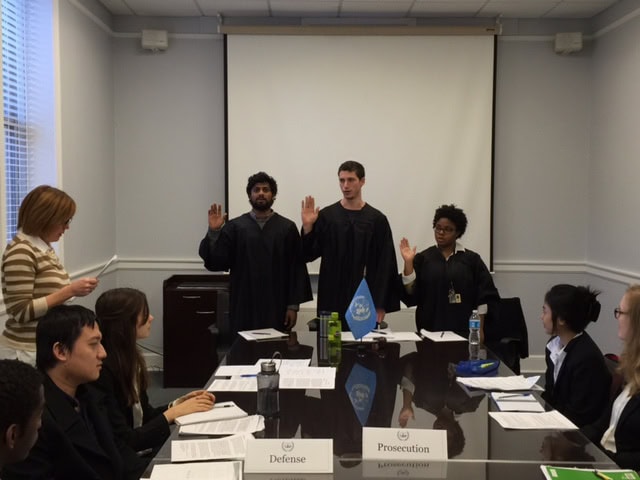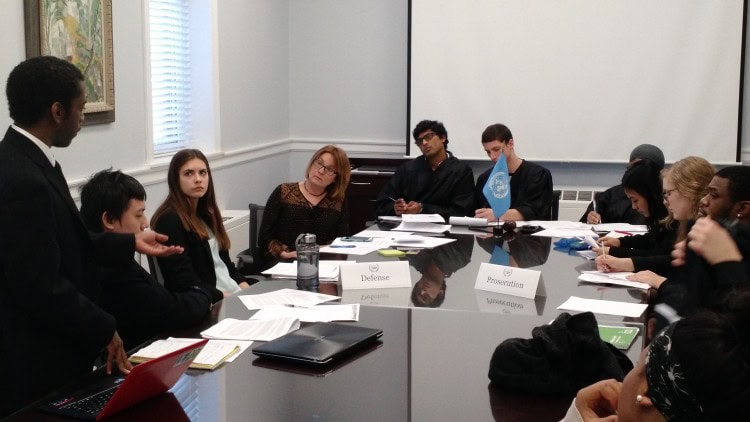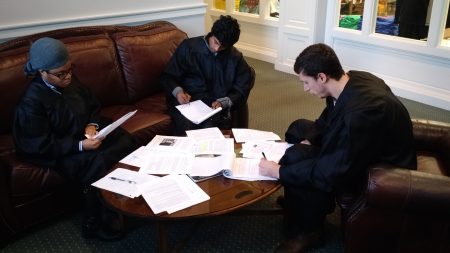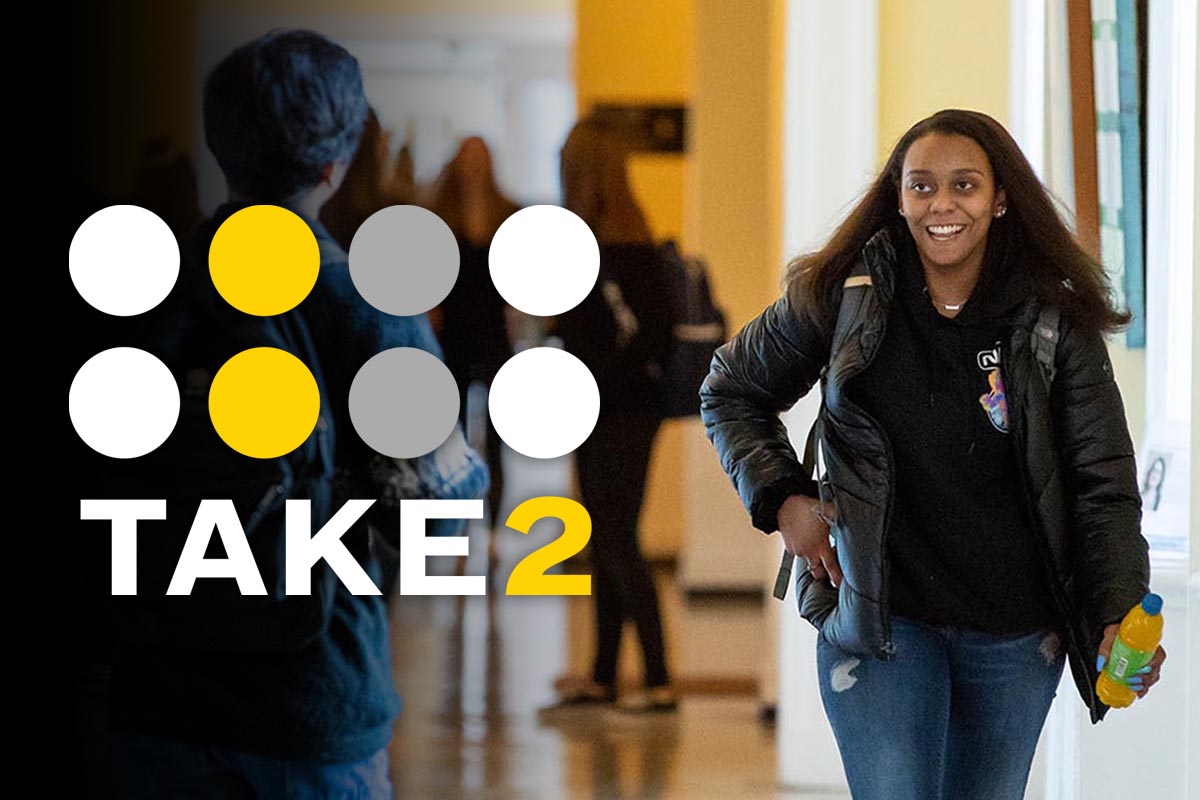International Law class issues verdict for alleged war criminal
After a three-day pre-trial held on the Randolph campus, three judges ruled that there was enough evidence to continue prosecution of Colonel Igor Girkin in International Criminal Court. Girkin was allegedly connected with the downing of Malaysian Airlines flight MH17 near the Ukraine-Russia border July 17, 2014.
After the ruling, the judges, prosecution and defense teams, and victims’ representatives chatted about the case and broke homemade bread together in Darden 1. All 11 involved in the case were students in political science professor Jennifer Dugan’s traditional end-of-semester court simulation.
“The value of the simulation is that it requires students to apply just about everything from the semester to an actual court proceeding, with students playing various roles and tending to have a lot at stake in ‘winning’ the case,” Dugan said. “Basically, it’s a way to bring the material to life. I often have alums writing years later about their simulation experiences when the ICC shows up in the news. I think the experiences makes a big impact on students.”

Judges (from left) Tahan Menon ’16, Donald Saltmash-Lubin ’16, and Vanessa McBean ’16 are sworn in on day one of the pre-trial.
In preparation for the simulations, Dugan said some semesters she writes a script from beginning to end with hypothetical people, indictments, and countries. Other semesters, like this one, the cases are based on real people and real events. The real trial for Colonel Igor Girkin of the Donetsk People’s Republic Independence Movement has yet to happen.
“We simulate the International Criminal Courts, as opposed to other international or regional courts, because it is the world’s newest court, is innovative in its approach to trying individual criminals, including heads of state, and builds in major ways on the precedent that the Nuremberg Trials set after World War II, including crimes against humanity,” she said.
Since MH17 was traveling from Amsterdam to Kuala Lumpur, the simulation hit close to home for Eva Heitbrink ’17, who lived in the Netherlands when the incident occurred. She was a part of the prosecution team for the mock trial, and did research to find compelling evidence to convince the judges that the defendant was guilty of war crimes and crimes against humanity. One of the keys for the prosecution was proving that the case fell under the court’s jurisdiction, she said.
“It is actually really interesting and fun to take on this ‘identity’ of the prosecutor,” Heitbrink said. “You get really invested in trying to convince the judges that what you are arguing is right.”
While she is uncertain what career path she might take, Heitbrink said the simulation has improved her understanding of the international judicial system. “The class in general has not only helped in understanding the workings of the ICC and international law, but also how to apply it to situations anywhere in the world,” she said. “Moreover, the simulation has helped in learning to work as a team and speaking in public to name just a few examples. It was really exciting to be part of the simulation, knowing that this could possibly one day be an actual case at ICC.”
Donald Saltmarsh-Lubin ’16 was one of the three students clad in judges’ robes for the simulation. He said the biggest challenge in judging the case was remaining unbiased while also delivering a verdict that would allow the families of the 298 victims to have closure.
“It was interesting to see the evidence and tactics that the prosecution and defense used to strengthen their arguments, and I wanted to make sure that I found any holes in logic that each side made in order to only allow the facts and evidence of the case to take priority,” he said. “This exercise has shown me how important perspective is in a case. Everyone has the same general evidence, but the prosecution and defense displayed that information completely differently to strengthen their own arguments.”
Saltmarsh-Lubin is a double-major in economics and political science, and is considering law school or graduate school as his next step.
“This gives me better understanding of what it takes to be a lawyer, along with how much depth of preparation is needed to present a strong argument that stands against opposing arguments,” he added. “This simulation has definitely encouraged my interest in political science as well as law, and I plan to continue to research and consider both career paths as the year progresses.”
Tags: Eva Heitbrink '17, jennifer dugan, political science


